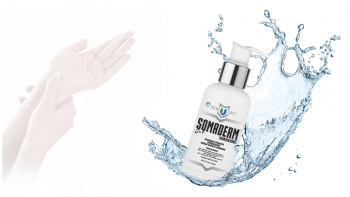Comments
REHAB - Intensive outpatient programs (IOPs) are crucial in helping individuals on the path to recovery from drug or alcohol addiction. Unlike onsite treatment, where individuals stay at a facility, IOPs offer flexibility while providing care and guidance for recovery. This article will delve into how IOPs support relapse prevention through assistance systems teaching coping strategies aiding in planning for relapse prevention and facilitating monitoring and follow-up care.
Building a Strong Foundation through Support Systems
Recovery dramatically benefits from having a support network because it helps in preventing relapse from drugs or alcohol. IOPs understand this importance and focus on creating support systems as part of their treatment approach. These programs often include one-on-one counseling sessions where participants can openly discuss their experiences, challenges, and progress with therapists specializing in addiction treatment. Group therapy is also integral to IOPs, allowing individuals to share their stories, gain insights from peers, and foster connections through empathy.
Equipping Individuals with Essential Coping Skills
The journey to recovery presents challenges and triggers that could lead to relapse if not managed effectively. IOPs provide individuals with coping mechanisms to navigate situations successfully.
By engaging in therapy sessions and educational workshops, participants acquire a range of life skills tailored to empower them in moments. These skills enable individuals to recognize triggers, adopt coping mechanisms for stress and anxiety, enhance resilience against cravings, and embrace practices like meditation and deep breathing to boost well-being—all valuable tools for avoiding relapse.
The Importance of Relapse Prevention Planning for Long-Term Success
Prevention is indeed better than cure in the realm of addiction recovery. Intensive outpatient programs not only support individuals during the stages of recovery but also equip them with the knowledge to develop personalized relapse prevention strategies for the long haul. These plans are customized to suit each person's situations and triggers, incorporating tactics such as setting boundaries, building support systems, and making lifestyle adjustments. The collaborative approach of IOPs ensures that individuals can actively engage with their treatment providers in crafting, refining, and implementing these individualized plans.
Sustained Monitoring: Upholding Accountability
Monitoring plays a role in preventing relapse. IOPs commonly include drug or alcohol testing as part of their protocols to help participants remain responsible for their progress in recovery. Whether conducted onsite or arranged through labs based on program specifications, this monitoring component serves as a cornerstone in ensuring accountability.
These assessments not only deter substance misuse but also offer valuable insights into an individual's journey toward sobriety. By holding individuals accountable and emphasizing the significance of their progress, intensive outpatient programs (IOPs) nurture dedication and motivation, which are vital for recovery.
Continuing Support: Maintaining Long-Term Sobriety
Transitioning from treatment to life can pose challenges for those in recovery. To ensure support for long-lasting sobriety, IOPs often deliver comprehensive follow-up care services post-program completion. This might include sessions with a counselor or specialized therapeutic groups for program alumni. The availability of continued care provides reassurance that individuals are not navigating their recovery journey alone and encourages them to prioritize their well-being after completing the outpatient treatment phase.
Embracing a Holistic Approach: Addressing Mind, Body and Spirit
A distinguishing feature of intensive outpatient programs (IOPs) is their holistic care approach. By focusing on not the addiction itself but the underlying factors contributing to it, IOPs help individuals attain a more thorough and effective recovery.
In intensive outpatient programs (IOPs), therapy sessions commonly incorporate a variety of proven methods, like cognitive behavioral therapy (CBT), dialectical behavior therapy (DBT), and motivational interviewing. These therapeutic strategies aim to address thought patterns, manage emotions, improve communication skills, and enhance resilience—all aspects of sustained recovery.
Acknowledging the Impact: A Path to Recovery
Furthermore, many IOPs acknowledge the impact of therapies on individuals' recovery paths. These activities may include practices such as mindfulness exercises, art therapy, yoga or meditation classes, fitness programs, nutrition guidance, or equine-assisted therapy. By promoting well-being through these approaches, IOPs assist individuals in developing self-awareness and self-care practices and making healthier choices in their lifestyles.
Conclusion
To sum up, intensive outpatient programs help prevent relapse by providing support systems. They teach coping strategies, help with planning for relapse prevention, and maintain monitoring procedures by conducting regular drug or alcohol tests. Additionally, they offer care services to support individuals after they complete the program. By embracing the resources through IOPs, participants increase their chances of achieving long-term sobriety and building a future filled with health and wellness.
###
























